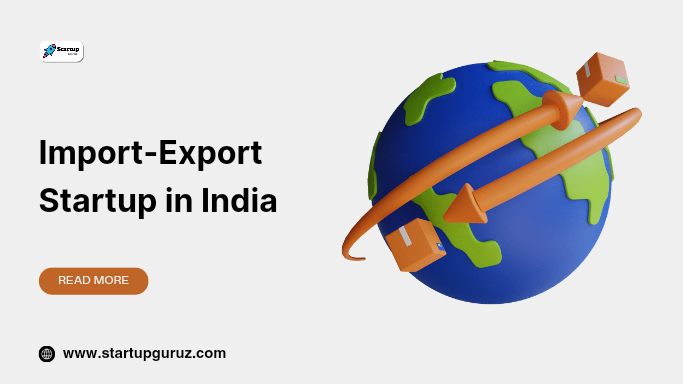Import-Export Startup in India
Import-Export Startup in India: A Comprehensive Guide
Are you considering venturing into the import-export business in India? This guide provides a step-by-step overview of starting your import-export venture, including the necessary documentation, legal requirements, and FAQs.

Introduction to Import-Export Business in India
India is a burgeoning hub for import-export businesses due to its strategic geographical location, diverse market, and supportive government policies. With the liberalization of trade policies and the advent of digital platforms, aspiring entrepreneurs have ample opportunities to explore the import-export sector.
Steps to Start an Import-Export Business in India
- Market Research: Conduct thorough market research to identify lucrative product niches, target markets, and competitors.
- Business Plan: Develop a comprehensive business plan outlining your objectives, target market, sourcing strategies, pricing, and marketing strategies.
- Company Registration: Register your business entity as per the legal requirements. You can choose from various options such as sole proprietorship, partnership, LLP, or private limited company.
- Obtain Importer-Exporter Code (IEC): Apply for an IEC from the Directorate General of Foreign Trade (DGFT). It is a mandatory requirement for engaging in import-export activities.
- Choose Product Categories: Determine the product categories you intend to trade in and obtain necessary certifications or licenses, such as FSSAI for food products or BIS for certain items.
- Supplier Identification: Identify reliable suppliers or manufacturers for your chosen products, both domestically and internationally.
- Export Documentation: Familiarize yourself with export documentation requirements, including commercial invoices, packing lists, shipping bills, and certificates of origin.
- Import Documentation: Understand the import procedures and documentation required, such as bill of entry, customs clearance, and payment of import duties.
- Logistics and Shipping: Set up logistics and shipping arrangements to ensure smooth transportation of goods from the source to the destination.
- Marketing and Sales: Develop a robust marketing and sales strategy to promote your products in target markets, both domestically and internationally.
FAQs on Import-Export Startup in India
- What is an Import-Exporter Code (IEC), and is it mandatory?
- An IEC is a 10-digit code issued by the DGFT, which is mandatory for anyone engaged in import-export activities.
- Do I need to register my business to start an import-export venture?
- Yes, you need to register your business entity as per the legal requirements in India.
- What are the key challenges in the import-export business?
- Challenges may include currency fluctuations, customs regulations, logistics, finding reliable suppliers, and international market fluctuations.
- How do I find reliable suppliers for my import business?
- You can find suppliers through trade directories, online platforms, trade fairs, and networking with industry associations.
- What are the government incentives available for export-oriented businesses?
- The Indian government offers various incentives such as Export Promotion Capital Goods (EPCG) scheme, Merchandise Exports from India Scheme (MEIS), and Export Credit Guarantee Corporation (ECGC) schemes.
- What are the risks associated with international trade?
- Risks include currency exchange rate fluctuations, geopolitical tensions, trade barriers, and compliance issues.
- How do I ensure compliance with import-export regulations?
- Stay updated with the latest regulations, obtain necessary licenses and permits, maintain accurate records, and seek professional advice if required.
- Can I start an import-export business from home?
- Yes, you can start small-scale import-export operations from home and gradually expand your business as you grow.
- What are the popular import-export product categories in India?
- Popular categories include agricultural products, textiles, pharmaceuticals, machinery, electronics, and handicrafts.
- How long does it take to establish a successful import-export business?
- The timeline varies based on factors such as market demand, product selection, networking, and marketing efforts. It may take several months to a few years to establish a thriving import-export venture.
Conclusion
Starting an import-export business in India offers immense opportunities for growth and profitability. By following the steps outlined in this guide and addressing common FAQs, you can embark on your journey to become a successful importer-exporter in the dynamic Indian market.